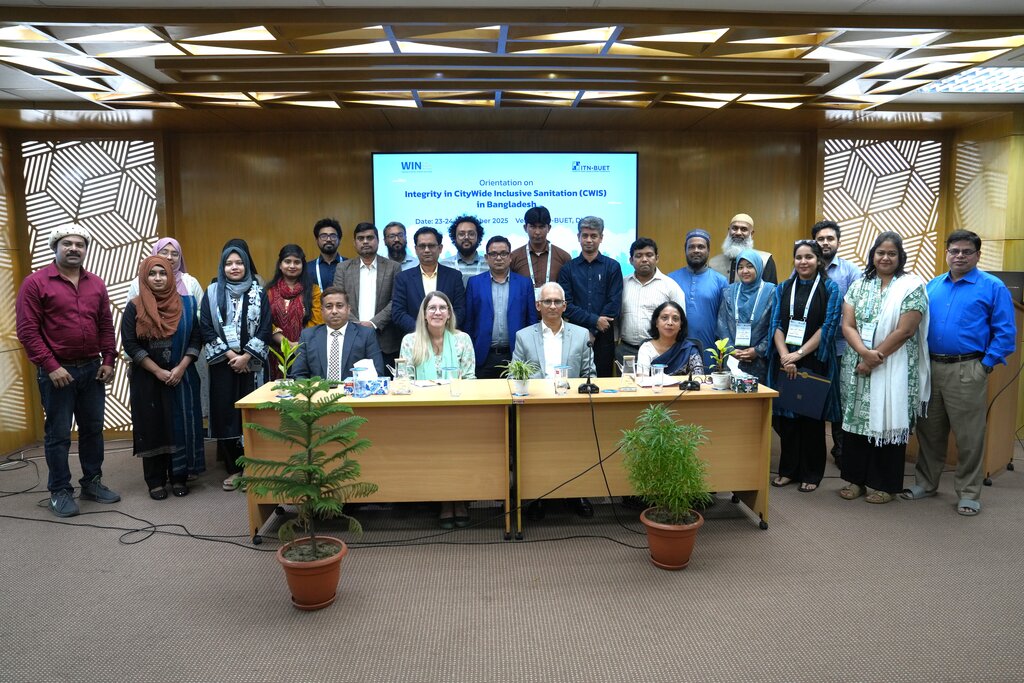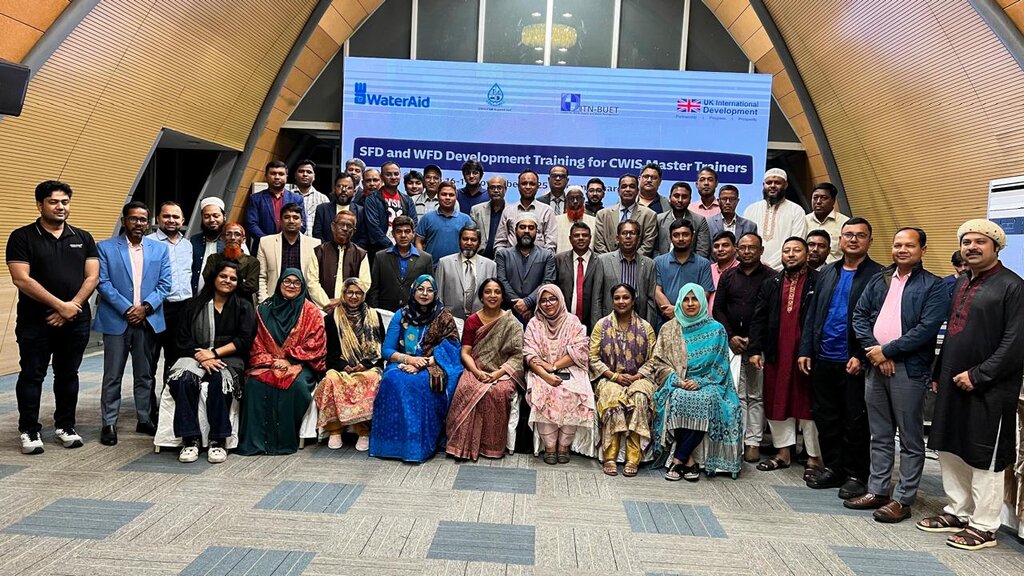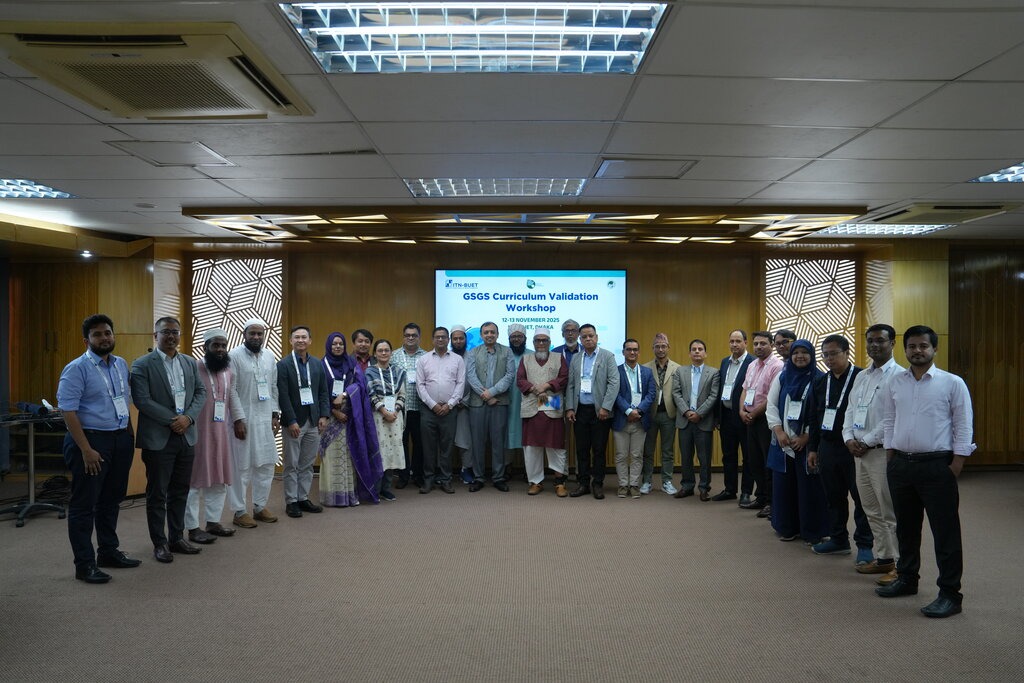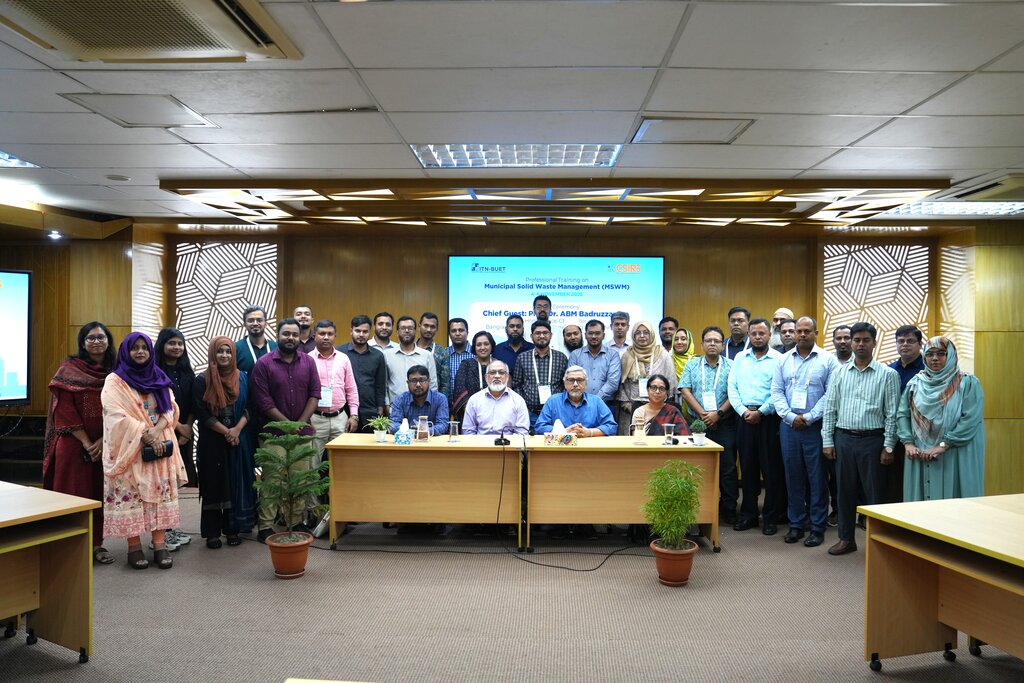Sanitation workers play a crucial role in maintaining the cleanliness of the cities, yet they often lack the rights and opportunities they deserve. To improve the lives and livelihoods of the waste and sanitation workers, Bangladesh FSM Network conducted a workshop titled ‘Dialogue on Dignifying Sanitation Workers’ Lives for Achieving SDG-6.2’ at the International Training Network-Bangladesh University of Engineering and Technology (ITN-BUET) on 17 October 2023. ITN-BUET, a founding member of the FSM Network, engaged to contribute to this meaningful dialogue.
Md. Emdadul Hoq Chowdhury, Joint Secretary, Policy Support Branch (PSB), Local Government Division, joined the workshop as the Chief Guest. He said, “The dedication of sanitation workers is the backbone of a healthy society. The dignity of labor applies to all professions, including sanitation. Let us work collectively to ensure the well-being of those who keep our cities clean.”
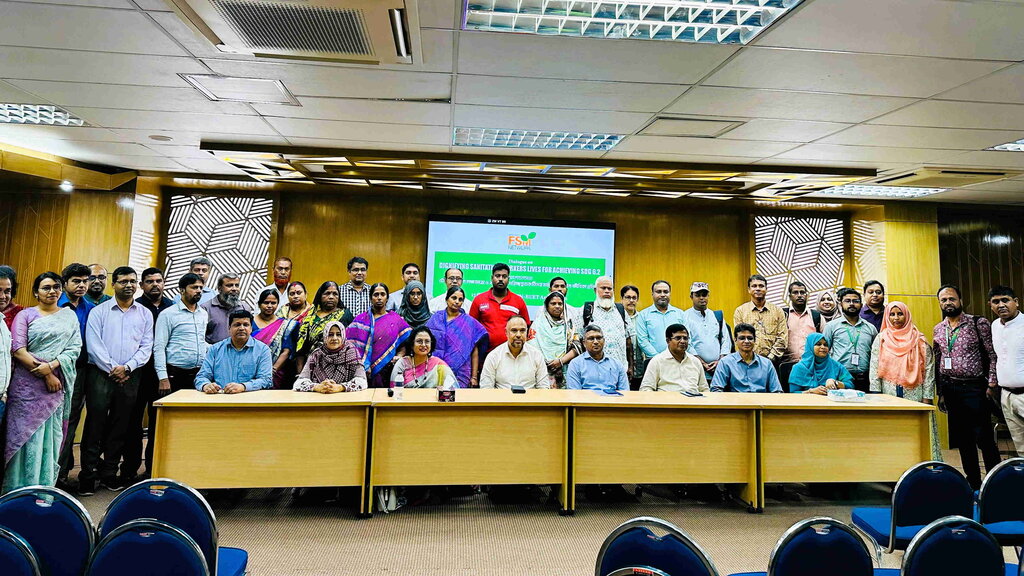
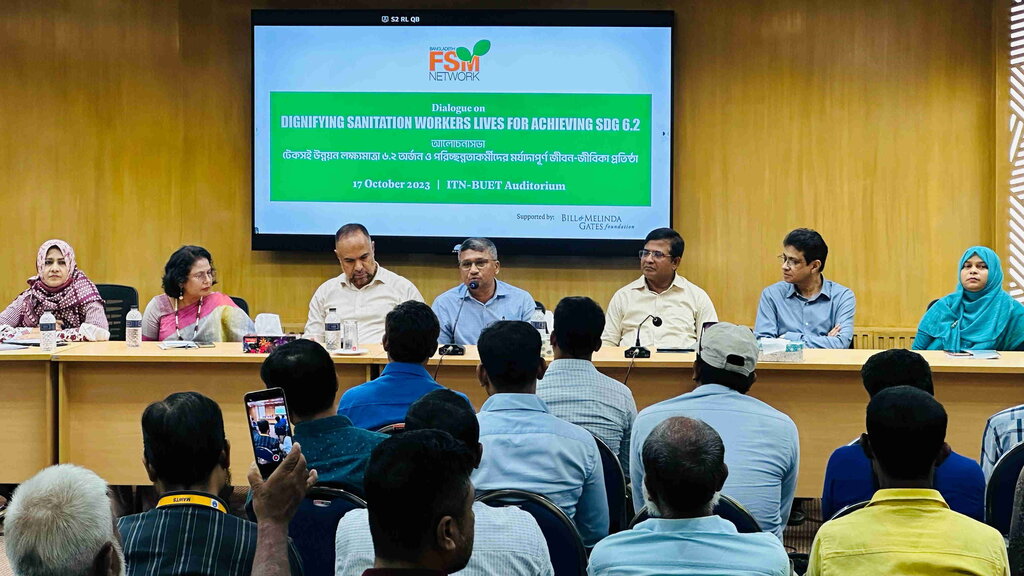
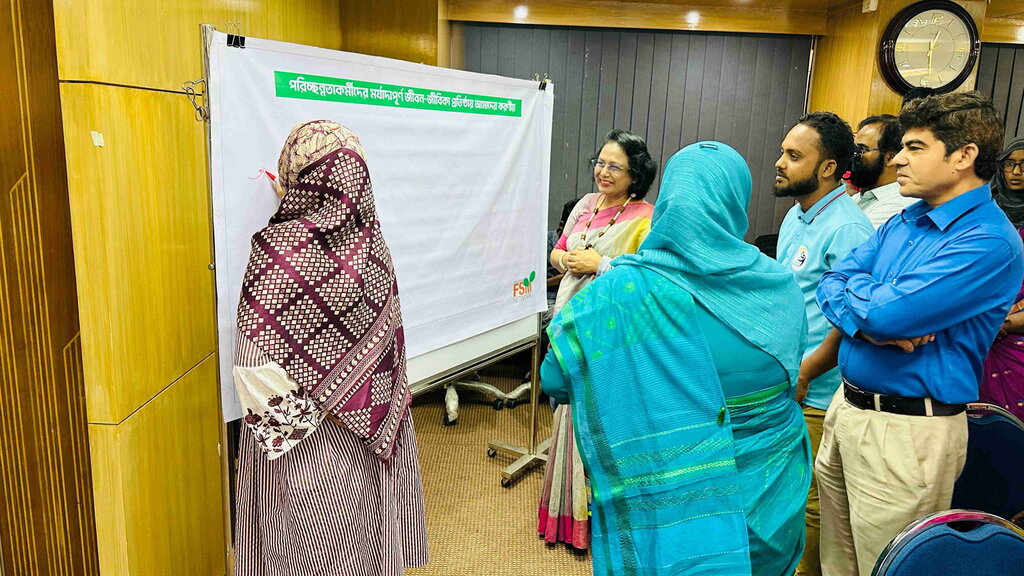
Dr. Shawkat A Begum, Country Director of Practical Action, delivered the welcome speech at the workshop. Other distinguished guests included representatives from the Department of Labor, Department of Public Health and Engineering (DPHE), Social Welfare Department, Women Affairs Department, and Insurance Development and Regulatory Authority (IDRA) attended the workshop as guests. Professor Dr. Ashraf Ali, Acting Director of ITN-BUET, chaired the program.
This initiative discussed the challenges waste and sanitation workers face, like staying safe, earning fair wages, getting the respect they deserve, and having access to education and healthcare. Ms. Ratna, a women sanitation worker, delivered a presentation on the responsibilities and current circumstances of the waste and sanitation workers. She shed light on the obstacles they encounter, their socioeconomic status, and the aspirations of waste and sanitation workers for a more supportive society.
In the workshop, representatives from local authorities and non-profit organizations and 25 waste and sanitation workers shared their thoughts. Sobuj Mia, a sanitation worker, said, “We just want people to appreciate our work. We do more than pick up trash; we help our communities.” Asma Begum, a woman sanitation worker, added, “We keep the streets clean and safe, but no one seems to notice our hard work.”
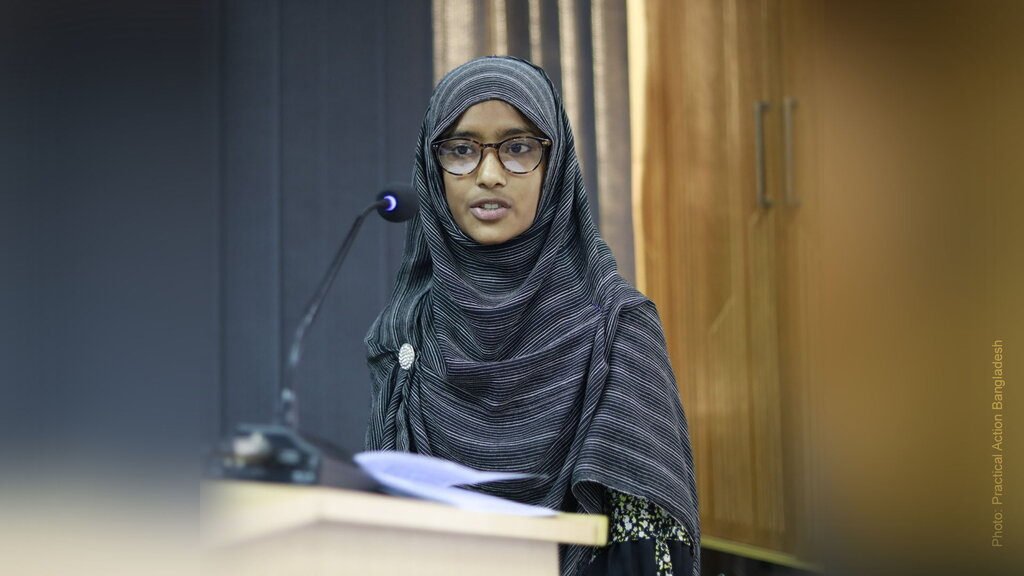
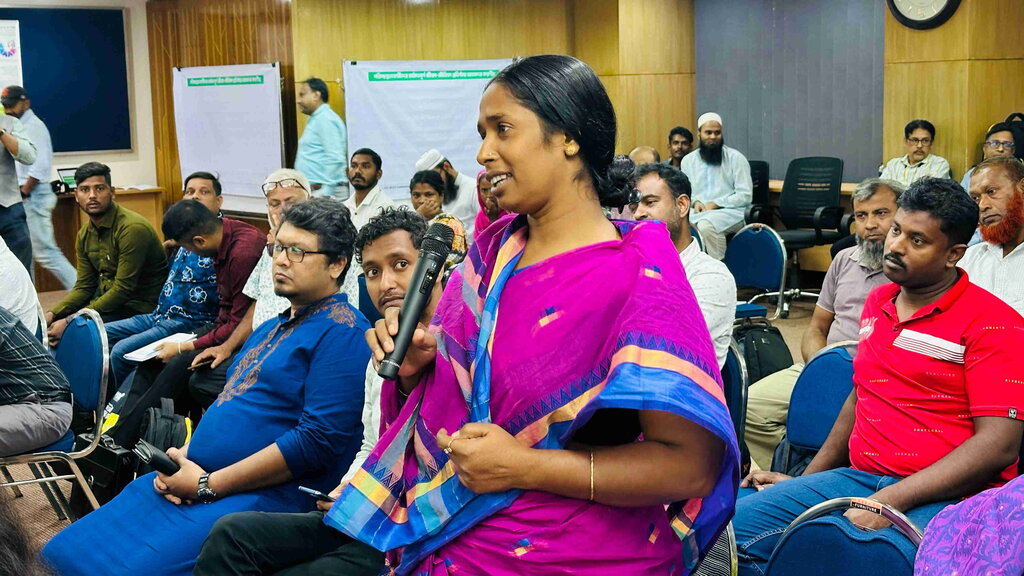
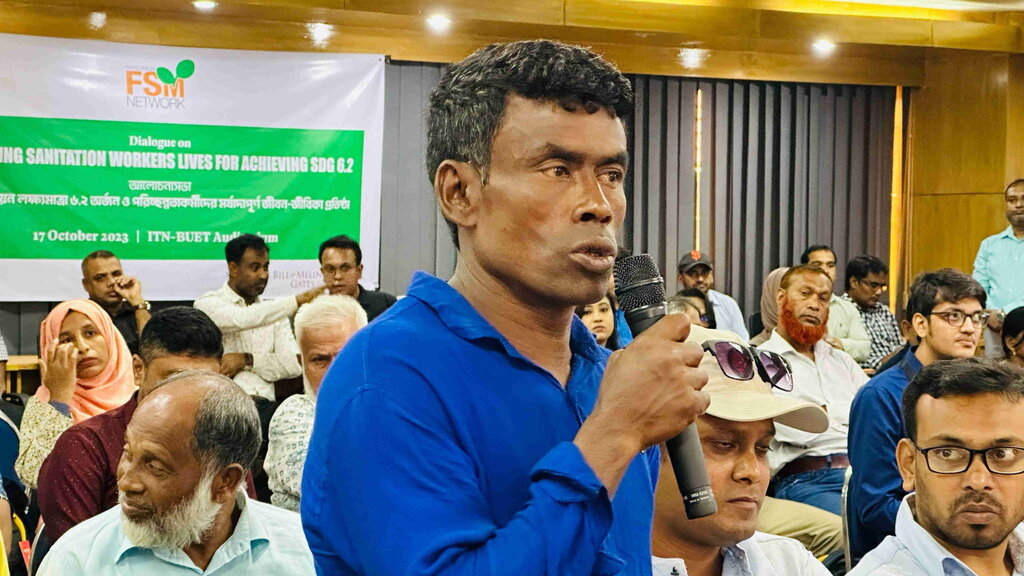
The program places a strong emphasis on ensuring that waste and sanitation workers are provided with modern safety equipment and training to decrease workplace risks. Additionally, there will be initiatives to increase public awareness about the essential role waste and sanitation workers play and promote more respect for their profession. Furthermore, discussions have been held to ensure that waste and sanitation workers receive fair pay for their crucial work and to provide healthcare benefits to both the workers and their families, ultimately enhancing their overall quality of life.
The workshop yielded several recommendations. One suggested granting permanent employment status to sanitation workers in paurashavas who have consistently worked for over three months. Additionally, a proposal was put forward to allocate funds to paurashavas for health insurance, personal protective equipment (PPE), and other safety issues concerning waste and sanitation workers.
Workshop participants highlighted the importance of cooperation among government agencies, non- governmental organizations, private sector entities, and civil society to ensure the effective implementation of the proposed measures.


